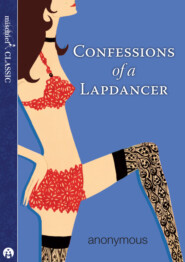По всем вопросам обращайтесь на: info@litportal.ru
(©) 2003-2024.
✖
Georgie and Elsa: Jorge Luis Borges and His Wife: The Untold Story
Настройки чтения
Размер шрифта
Высота строк
Поля
The Van Dells would drive to Cambridge, pick up Georgie and Elsa, and take them touring Salem and other North Shore towns of interest. Of course to Borges Salem meant Nathaniel Hawthorne, the town’s native son and one of his favourite American authors. Knowing this, Van Dell at once took Georgie and Elsa to visit the house of the seven gables.
The couples enjoyed several other outings together, including meals at the Van Dells’. And then, suddenly, abruptly, and without explanation, there were no more meetings. In his puzzlement, Borges quizzed me for a possible reason for such a turn of events. There was obviously some key factor involved about which Borges was being kept in the dark, but I could not put my finger on it. Borges wanted to know if this were typical American behaviour. Quite untypical, I assured him, and with nothing more to offer, we let the subject drop.
Sometime during the university Christmas break Georgie and Elsa changed flats. They moved from the Concord Avenue entrance of their building just around the corner, where they could enter from the Craigie Street side. How Borges delighted to tell people they lived at Concord and Craigie, as if the words held some magical quality for him. He even worked the word Craigie into a new poem and launched into the root of the word.
Why the move at this time? What was the necessity of it? Maybe because Elsa was soon expecting guests – her son and later her cousin Olga – and she would have seen that more room was needed. But perhaps there was another contributing factor.
Along the corridor from the flat they vacated lived a Persian couple, as Borges referred to them. The man was a mathematician who had a theory of spherical time that fascinated Borges, although he did not understand it. Borges was also fascinated by the man’s wife, to whom he frequently paid visits. She was a sultry beauty and, I think, a scholar herself. Obviously this did not go down well with Elsa, and she and Georgie had spats about it.
I found it odd that in his confidences to me about Elsa Borges always belittled and made fun of her. He would give a little laugh so that his words fell short of outright nastiness. She had been a schoolteacher, he once told me, bemused, and yet she would ask why they spoke Spanish and why were they Argentines. He said with a sneer that she enjoyed the company of members of Greater Boston’s Argentine community, common people, non-scholars, non-intellectuals, with whom she could be her unfettered self. She went to their barbecues, where she stuffed herself on sweetbreads so that she would be laid up with a liver or pancreas attack for a day or two after. Taking to bed, she would have to lie on one side and drink lemon or grapefruit juice. Indeed, she had reported this behaviour to me herself, not without a touch of pride in her mischievous flirting with danger.
At the time I thought Borges’s revelations showed unwarranted disloyalty to a new wife but I was too immersed in our work to look for any deeper meaning to any of this. The two had actually come to blows, he told me one day, and he illustrated his words by pummelling me on the back, gentler of course than she had done with him.
Just before Christmas Murchison informed me that Borges had moved out of the marital home and was holed up in Room 319 of the nearby Continental Hotel. I would have to meet him there. Borges explained to me that he’d had a tiff with Elsa and would be at the hotel for a few days. ‘Tiff’ was the actual word he used, and his usage somehow amused me.
Elsa, on another occasion, cornered me in the flat while I was waiting for Borges to wake from his customary after-lunch nap. In an angry, unprovoked tirade she confided that since they were first married Georgie had failed her as a man. I knew the two slept in separate rooms but had given this no special thought. Elsa had always struck me as a sexual animal but standoffish Borges never.
She obviously felt cheated. Georgie was impotent and always had been, she said. Why hadn’t he told her from the start? He had waited until their wedding night, then thrown himself down on his knees before her, weeping. If only he had explained the situation beforehand, she seethed, adding bitterly, ‘I know how to take a man to bed.’
Utterly stunned, I offered not a single word in reply. Elsa’s frustration, her anger, her humiliation, her unhappiness, were now clear to me. So were Georgie’s unhappiness and his secret burden.
7. A Visitor and a Yard of Ale (#ulink_7659ddb5-b5e2-55ec-932f-07a2bb246fbf)
Ricardo, Elsa’s son, arrived at the very end of December and stayed for one month, not the seven months his mother later claimed in the doctored memories of her 1983 interview. Nor did the young man and Borges spend a lot of time together, as Elsa claimed, on long, long Cambridge walks. Her memories were a fiction. In fact, the day before Ricardo’s arrival it snowed all day, and the snow was deep and impassable on foot. A week later there were daylong sub-zero temperatures that Borges could not manage.
Before the cold weather set in, Borges had been going on and on about how much he looked forward to winter, for he hated the heat of Buenos Aires. Well, winter came, and it was a hard one. The pavements were icy and you had to shuffle along, skating gingerly, one foot in front of the other. His walking stick was of little use to him. He would hang on to my arm or to Murchison’s for dear life. If he fell hard it might result in damage to his retina and the little he could see would be lost.
It snowed and it snowed. The mounds along the kerbs of Concord Avenue grew higher and higher. Whenever the temperature dropped and the wind blew, walking anywhere became an ordeal. It was not long before Borges gave up going to his office at the Hilles Library. He was seeing and feeling at first hand what he came to call an ‘epic winter’.
Twenty-six-year-old Ricardo was introduced to me as a Buenos Aires theatre director. Was this another fiction? He did once in my hearing discuss the personality and fate of Hamlet with Borges, but I kept getting glimpses of another side of him.
In the middle of January, Rita Guibert, an Argentine journalist living in New York, came to Cambridge to work on a lengthy interview with Borges for Life en español. She was accompanied by a photographer who trekked through the snow to shadow Borges and his students at the Hilles Library and to record him and Elsa in their flat. Ricardo appears in two of the Hilles photos, both times in close proximity to the most glamorous girl in the class. (Elsa and Murchison appear in one of these pictures, at a meal, she wearing sunglasses.)
Ricardo, a good-looking fellow, wore his hair slicked straight back and dressed in a V-neck sweater over a shirt with the sleeves of the former pulled back to his elbows. Elsa doted on him and regarded him proudly as a bit of a rake. He was married, of course, but I suspect he was separated from his wife. He quite soon struck me as a louche character and something of a spiv. When the pretty girl retired to her Connecticut home for the term break Ricardo prevailed upon me to help him with a love letter to her.
It was Borges who circulated the story that all Ricardo and Elsa spoke about at the table during lunch, at afternoon tea, and at supper was which streets of the city the No. 48 bus traversed on its long route out to Flores. Maybe mother and son held such a conversation once. So what? In his remarks about this, Borges, who was incapable of inane talk, was airing his superiority. This was the kind of denigrating anecdote, usually apocryphal, that he regarded as clever and that he was constantly inventing to put someone down.
I don’t believe Borges ever took a shine to Ricardo but he seemed to tolerate him for Elsa’s sake and for the peace and stability her son brought to the troubled household.
Just after the new year Borges was invited to a dinner party given by Vail Read at her North Shore home in Manchester, Massachusetts. Mrs Gardner Read, to be more formal, was an official at Boston’s Pan American Society of New England. The party, a fairly large affair, was one Borges did not want Elsa to attend, so he asked me to accompany him instead.
Something odd and yet typical of the perverse whims Borges was capable of took place in the car when we were picked up. He sat beside the driver. I was in the back alongside a young man who happened to mention that his grandfather had been the leading Colombian Modernist poet Guillermo Valencia. A few weeks before I had casually asked Borges about this poet and got a flat reply that he knew nothing about him. Now, suddenly, having overheard the conversation in the back seat, Borges began reciting one of the grandfather’s most famous poems. I could not fathom it and never asked him for an explanation of the strange contradiction.
At the Reads’ we met, among many others, Herbert Kenny of the Boston Globe and John Updike. I seized the opportunity to ask Updike to make some translations for me and he agreed. Across the table, Borges and Updike swapped the names of detective-story writers each had read. The list, which was encyclopedic, held the rest of us in thrall. It was almost as if the one was trying to outdo the other, but in a cheerful, non-competitive way.
It may also have been here at the Reads’ table, if I remember correctly, that Borges and I invented – or, rather, first made public use of – the Old Norse. Whenever we were in company and Borges required the loo he would quietly say, ‘Di Giovanni, do you think an Old Norse?’ I would rise and, having reconnoitred the place beforehand, lead him straight to the bathroom and stand beside him to help point him and his stream in the right direction. Our code had originated when Borges first began to say to me that he thought it may be time for that old English custom, by which he meant taking a piss. But as I knew he had left the study of Old English behind and was now working on Old Norse I leapt at the play on words and contradicted him, saying, ‘You mean an Old Norse, don’t you?’ After that, Old Norse stuck.
During this period Borges and I spent several evenings and nights together working late and then going out for dinner. I owned a VW Beetle, and Borges loved the occasional escape from the flat. One night he asked if we could go to a bar and drink some beer. To amuse him I took him to a place that specialized in something called ‘a yard of ale’.
The yard of ale was drunk from what amounted to a long glass tube with a bulb at the end. You had to learn to lift the tube gradually and sip. If you tipped the tube up too quickly the whole yard rushed down to drench you. Somehow we mastered it and Borges was grinning like a naughty schoolboy. Afterwards, we took a drive down the Esplanade along the Charles on the Boston side of the river. We didn’t get back to Craigie until midnight.
One of Borges’s most popular poems is called ‘El otro tigre’ – the other tiger. At our destination I helped him to the little used Craigie Street entrance. From there he usually made his way up the one or two flights to the door of his flat. On this particular night, Borges could not wait to get upstairs to the loo. As soon as we entered the ground-floor door, he rushed under the stairway and opened his fly. He let go with an almighty flow and splash of piss that echoed loudly in the empty stairwell.
‘Borges,’ I said, pretending to be scandalized, ‘what are you doing?’
‘That’s all right,’ he said, ‘they’ll think it was some cat.’
‘Sure,’ said I, his mini-Niagara still reverberating in my ears, ‘el otro tigre.’
8. Vietnam, Olga, and Harvard Square (#ulink_dba396a7-5d9a-560c-8453-913a43f37af0)
Neither Georgie nor Elsa had any idea of what was going on in the United States during the months of their visit. Borges could not read newspapers or did not have them read to him, did not listen to the radio, and would have found that discussing political issues with anyone – or having anyone discuss political issues with him – was too boring for his consideration.
One day a young reporter for the Harvard student paper, the Advocate, appeared at the flat to conduct an interview. He touched on all the literary bases and at some point asked Borges what he thought about the Vietnam war. Borges briefly expressed himself in favour of the war – that is, of the role of the United States in that war.
After the reporter left, I asked Borges what he knew about the war. He could not answer. I asked him on what basis he had come out backing American government policy. I then explained to him that the country was nearly engaged in a civil war over Vietnam, that university campuses were in turmoil about it, and that all of his colleagues – writers and intellectuals – were protesting daily and marching on Washington to express their opposition.
He went silent, then said, ‘Well, di Giovanni, I thought Poe, Emerson, Whitman …’
On this flimsy literary basis he felt the United States could do no wrong. ‘Yes,’ I said, ‘Poe, Emerson, Whitman – and then who, Borges? Lyndon Johnson?’
I had more than hinted that he should not speak, especially to reporters, about matters of which he knew nothing. I phoned the Advocate and had a cordial word with the interviewer. I asked if he thought it was fair to put questions to Borges about the Vietnam war. He agreed it wasn’t and promised not to run Borges’s statement. And he didn’t.
This was the first of many times I was to stick my head above the parapet for Georgie. It was also the first time I was exposed to his blind political views.
The next guest to arrive at the Craigie Street flat was Elsa’s cousin Olga. It was a mark of Elsa’s ever increasing despair that as soon as her son had returned to Buenos Aires she required the familiar company of someone else who was close to her.
And Olga was close. Except in looks, Olga and Elsa were cut out of the same cloth. Now, in her cousin’s company, Elsa had no need to keep up her guard. The cousin was so ingenuous, so naturally candid, that she would not have known what it meant to keep up one’s guard. I liked that about Olga. She was incapable of putting on airs. She was just herself.
The two of them chittered and chattered incessantly, like a pair of cage birds. The way they spoke to each other fascinated me. Olga’s word in agreement with anything Elsa said was ‘lógico’, by which she simply meant ‘of course’. In addition to this usage, the word ‘logical’ held another meaning for Elsa. She prided herself in being logical, by which she meant practical, down to earth, and it was always in contrast to Georgie, who was impractical, a dreamer.
Once, when the subject of Ricardo’s wife came up, Elsa said, ‘Tell di Giovanni, Olga, isn’t Ricardo’s wife divine?’ To which Olga came back, ‘Oh, yes, di Giovanni, Ricardo’s wife is divina – divina, divina, divina.’
Yes, I told myself, so divina that her poor long-suffering husband is a confirmed womanizer.
There was something incorrigibly brazen about Olga.
I liked the way she spoke to Borges, without deference, as though he were part of the furniture, an old childhood friend, one of the family, which of course he now was. No one else knew how to speak to him in this straightforward manner. I liked the completely unselfconscious way she expressed herself with her body.
Olga was slightly shorter than Elsa. She wore loud combinations of clothes. On her, colours clashed, so that there was something of an out-of-tune brass band about her. Maybe it was her hair. The words ‘peroxide blonde’ had obviously been invented specially to describe its particular brash, strawlike colour. Apart from her earrings, necklaces, bracelets, and rings, Olga was adorned with the suntan of a New York widow who had long since taken up residence in Miami Beach.
And yet and yet … she was kindly and good-natured and I was truly grateful for the comic relief she unwittingly provided. Not for the others, perhaps, but certainly for me. I know that Elsa welcomed her; so did I. She was a waft of fresh air in a breathless, claustrophobic household.
The cousins were for ever off on shopping sprees, spending hours roaming Harvard Square together and gushing non-stop when they got back about the merits of this or that perfume, lipstick, eye shadow, false lashes, mascara, face cream, shampoo, hair conditioner. Georgie and I were always delighted to be left alone to get on with our work. In the late afternoon, exhausted and excited, the two piled in with their bags and tipped out the goodies. Then they could not rush fast enough to make us coffee. The only trouble with all this – at least from Borges’s point of view – was that Olga would not have won prizes for her looks.
The women’s outings brought them within range of a new species of local fauna – hippies. How the word tumbled off Olga’s tongue. She had come from Argentina with hippies as the number one attraction that she wanted to see at Harvard. She was awestruck and could not hold back from asking was it true the odd ways they wore their hair? The strange clothes they paraded about in? Was it true they smoked marijuana in public? I knew what was coming.
One day Elsa said, ‘Di Giovanni, why don’t you take Olga out some evening? She’d like to see some of the bars around Harvard Square.’











